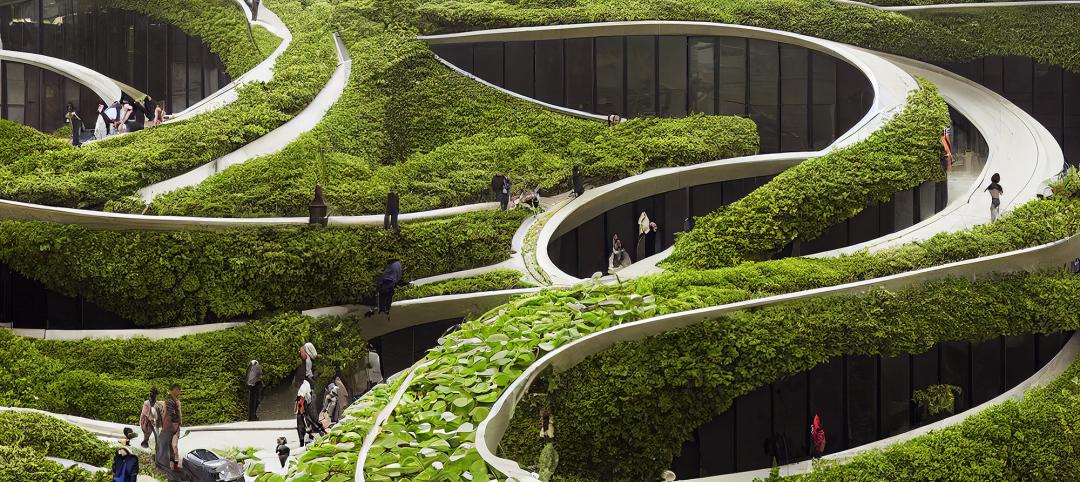They’re all “world middleweight cities” that are likely to become regional megacities (10 million people) by 2025—along with Dongguan, Guangzhou, Hangzhou, Shenzhen, Tianjin, and Wuhan (China); Kinshasa (Democratic Republic of the Congo); Jakarta (Indonesia); Lahore (Pakistan); and Chennai (India).
These “emerging middleweight” cities are among the “City 600,” the top 600 cities by contribution to global GDP growth from 2007 to 2005, as defined in a new report from McKinsey Global Institute: “Urban World: Mapping the economic power of cities”.
The 1.5 billion people who live in the City 600 (22% of world population) accounted for $30 trillion of GDP in 2007—more than half of global GDP. The top 100 alone generated $21 trillion, 38% of global GDP, according to McKinsey.
By 2025, these 600 cities will be home to 2.0 billion, a quarter of the world’s population, and account for $64 trillion, or 60% of global GDP.
The top 25 “hot spots” for GDP by 2025 include (in rank order) New York, Los Angeles, Chicago, Dallas, Washington, D.C., Houston, Philadelphia, Boston, and San Francisco, along with such places as São Paolo (Brazil), Rhein-Ruhr (Germany), Mexico City, Randstad (Netherlands), Shanghai, Beijing, and Hong Kong.
Other key findings of the McKinsey study:
• By 2025, the makeup of the City 600 will change as the center of gravity of the urban world moves south and east. One-third of developed market cities will no longer make the top 600.
• By 2025, up to 136 new cities will enter the City 600 list, all of them from the developing world—100 of them from China alone, including Haerbin, Shantou, and Guiyang.
• India will contribute 13 newcomers to the City 600 list, including Hyderabad and Surat. Latin America will add eight, notably Cancún (Mexico) and Barranquilla (Colombia).
• About 310 million more people of working-age population will live in the City 600 by 2025—almost 35% of the expansion of the global workforce, almost all of it in emerging markets and two-thirds in China and South Asia.
What do all these fascinating data points mean to the design and construction industry, and to you as an AEC professional? In a nutshell, the McKinsey people are saying, If you want to grow your business—and your career—over the next 15 years, you must look to foreign climes.
It is in the emerging cities that GDP will be growing at a faster rate than global GDP. Where the workforce will be expanding more quickly than in the rest of the world. Where demand for housing, retail shops, schools, libraries, museums, data centers, universities, office buildings, religious centers—all the magnificent structures you and your firms create and build—will be accelerating at a hyperfast rate compared to the growth, if any, in much of the developed world.
To be competitive in the coming decade and a half, AEC firms and professionals are going to have to shift their lines of sight eastward and southerly, to places with names like Luanda, Chongqing, Dhaka, Colombo, and Grande Vitória.
Related Stories
Cultural Facilities | Aug 21, 2024
Baltimore’s National Aquarium opens 10,000-sf floating wetland that mimics the harbor’s original tidal marsh habitat
The National Aquarium in Baltimore has opened the National Aquarium Harbor Wetland, a 10,000-sf floating wetland that mimics the Inner Harbor’s original Chesapeake Bay tidal marsh habitat. Located between Piers 3 and 4 on Baltimore’s Inner Harbor, the $14 million project features more than 32,000 native shrubs and marsh grasses.
Mixed-Use | Aug 21, 2024
Adaptive reuse of a Sears store becomes luxury mixed-use housing
6 Corners Lofts at 4714 W Irving Park Road, Chicago, Ill., opened in March of 2024 as a 394,000-sf adaptive reuse project born out of a former Sears store.
Building Materials | Aug 19, 2024
Federal 'buy clean' construction materials label program unveiled
The U.S. Environmental Protection Agency announced a plan for implementing a new label program to boost American production of more climate-friendly construction materials and products. The label program will prioritize steel, glass, asphalt and concrete.
Museums | Aug 19, 2024
The Tampa Museum of Art will soon undergo a $110 million expansion
In Tampa, Fla., the Tampa Museum of Art will soon undergo a 77,904-sf Centennial Expansion project. The museum plans to reach its $110 million fundraising goal by late 2024 or early 2025 and then break ground. Designed by Weiss/Manfredi, and with construction manager The Beck Group, the expansion will redefine the museum’s surrounding site.
AEC Tech | Aug 19, 2024
Harnessing AI to revolutionize architectural design and creativity
Architects are wondering if AI will replace us. For Vessel, the gains offset the fear. We believe there is wisdom in the unattributed quote, “You won’t lose your job to AI. You will lose your job to someone using AI.”
Reconstruction & Renovation | Aug 19, 2024
Movement to protect historic buildings raises sharp criticism
While the movement to preserve historic buildings has widespread support, it also has some sharp critics with well-funded opposition groups springing up in recent years. Some opponents are linked to the Stand Together Foundation, founded and bankrolled by the Koch family’s conservative philanthropic organization, according to a column in Governing magazine.
Government Buildings | Aug 19, 2024
GSA posts new RFI for enabling energy efficiency, decarbonization in commercial buildings
The U.S. General Services Administration (GSA), in collaboration with the U.S. Department of Energy, recently released a new Request For Information (RFI) focused on enabling energy efficiency and decarbonization in commercial buildings. GSA wants to test innovative technologies through GSA’s Center for Emerging Building Technologies.
MFPRO+ New Projects | Aug 16, 2024
At 60 stories, the Paramount multifamily development will stand as Nashville’s tallest high rise
When complete, the 60-story Paramount building, at 750 feet high, will be the tallest high rise tower in Nashville, Tenn., surpassing the city’s current record holder, the 617-foot AT&T Building. The $390 million Paramount project recently launched condo sales after securing more than $230 million in construction financing.
Urban Planning | Aug 15, 2024
New York City begins first large-scale porous pavement installation
New York City is installing its first large-scale porous pavement installation along seven miles of roadway in Brooklyn. The project will keep 35 million gallons of stormwater out of the combined sewer system each year, according to a news release.
Urban Planning | Aug 15, 2024
The magic of L.A.’s Melrose Mile
Great streets are generally not initially curated or willed into being. Rather, they emerge organically from unintentional synergies of commercial, business, cultural and economic drivers. L.A.’s Melrose Avenue is a prime example.
















